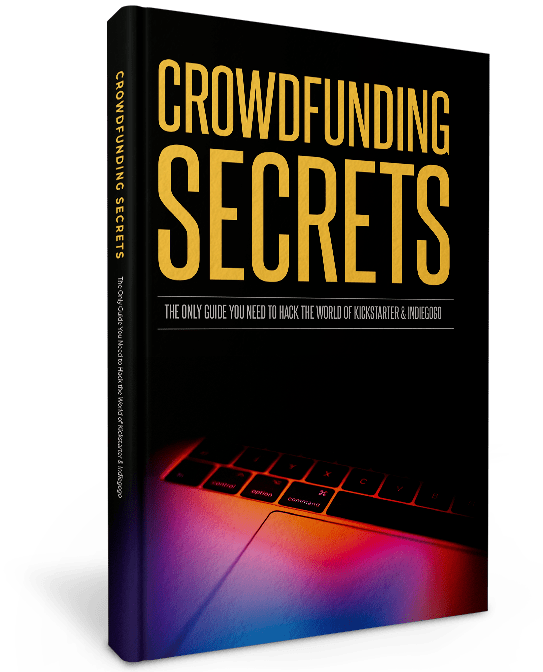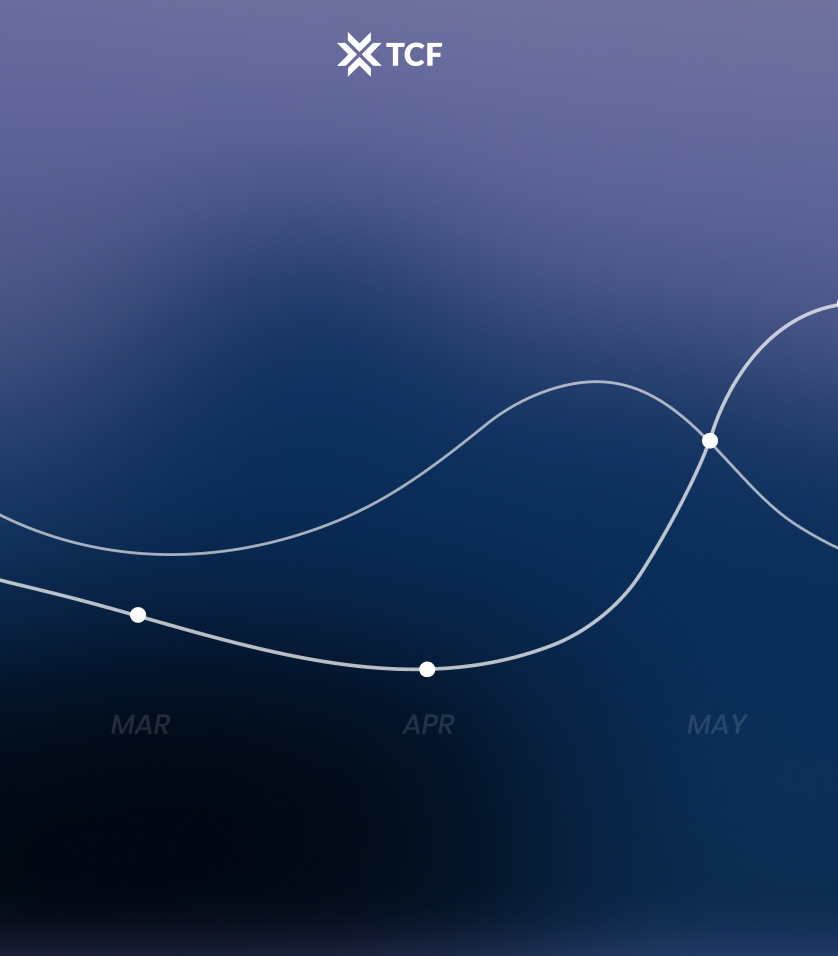Feeling swamped by the endless options for marketing tools for ecommerce and not sure which ones are truly effective? You’re not alone. With so many choices out there, it can be challenging to identify the ones that will genuinely boost your strategy and deliver results.
To help cut through the confusion, we’ve surveyed industry experts at TCF and gathered a list of the top 27 ecommerce marketing tools that stand out from the rest. These tools have been selected for their proven effectiveness in optimizing SEO, enhancing social media strategies, and automating marketing tasks. Each one has demonstrated its ability to make a significant impact, streamlining processes and driving success.
In this guide, we’ll explore each tool by detailing:
- What sets it apart or makes it exceptional
- A rundown of its key features
- Any potential drawbacks
- Practical use cases or examples
- Pricing details to fit your budget
Hope you are ready to level up your ecommerce marketing game.
Marketing analytics tools for ecommerce
Dive deep into your data and unlock the secrets of customer behavior with these powerful analytics tools—because knowledge isn’t just power, it’s profit!
1. Google Analytics
Google Analytics is your go-to tool for seeing exactly what’s happening on your website—who’s visiting, what they’re doing, and where they’re dropping off.
It’s loaded with features like real-time tracking, audience segmentation, custom reports, and ecommerce tracking, all integrated seamlessly with Google Ads and Search Console.
The amount of data can be a bit overwhelming at first, but once you get the hang of it, it’s a game-changer.
For example, when you launch a new product, you can track how visitors engage with it, from landing page to checkout.
The basic version is free, which is great for most businesses, but if you need advanced features, Google Analytics 360 is available for around $50,000 a year.
2. Mixpanel
Mixpanel is all about understanding user behavior at a granular level, tracking every click, swipe, and action on your site or app.
It’s particularly strong in event-based analytics, letting you see exactly how users interact with different features and where they drop off. Key features include event tracking, funnel analysis, and cohort reports, which are gold when you’re optimizing product features or marketing strategies.
The learning curve can be steep, and costs can rise quickly with heavy usage, but the insights are worth it.
For example, you can track how users move through your checkout process and pinpoint where improvements are needed.
Pricing starts at $28/month, with a free tier for up to 20 million events.
3. Hotjar
Hotjar lets you see exactly how visitors interact with your website, giving you insights into where they click, scroll, and eventually drop off. It’s like having a behind-the-scenes pass to your users’ experience.
With features like heatmaps, session recordings, and feedback polls, you can dig into why users aren’t converting as expected.
It’s particularly effective for small to mid-sized businesses, though larger enterprises might find it a bit limited.
For instance, if you notice a lot of cart abandonments, Hotjar helps you pinpoint where users lose interest.
There’s a free basic plan to get you started, and more advanced features come with pricing starting at €32/month. It’s a solid tool for making informed tweaks to your site.
SEO and Content Marketing Tools for Ecommerce
These SEO and content marketing tools will boost your visibility and help you create content that connects—because even great content sometimes needs a little push to shine!
4. Ahrefs
Ahrefs is your go-to tool for all things SEO, whether you’re looking to boost your site’s rankings or spy on the competition. It’s particularly known for its powerful backlink analysis, letting you see who’s linking to your site and how you compare to others in your niche.
Other standout features include keyword research, site audits, and rank tracking, making it an all-in-one solution for improving your search engine visibility.
The downside? It’s a bit on the pricey side, and its depth can be overwhelming for beginners.
You can use Ahrefs to find high-value keywords for your product pages and track your progress over time.
Pricing starts at $129/month, offering solid value for serious SEO efforts.
5. SEMrush
SEMrush is an all-in-one digital marketing tool that’s a favorite for SEO, PPC, and content marketing. It’s packed with features like keyword research, site audits, competitive analysis, and even PPC campaign management.
Whether you’re looking to improve your search rankings, optimize your ad campaigns, or get a leg up on the competition, SEMrush has you covered.
The tool can be a bit overwhelming at first, given its extensive capabilities, and it’s on the pricier side, which might be a drawback for smaller businesses.
For instance, SEMrush can be used to discover underperforming keywords on a product page. This insight can then lead to a refined content strategy that results in a significant traffic increase and better conversion rates.
Pricing starts at $139.95/month, with higher tiers for more advanced needs.
6. GPT-4 by OpenAI
GPT-4 by OpenAI is a powerhouse for content generation, capable of producing high-quality, contextually relevant text that feels like it was written by a human. It’s incredibly versatile, whether you need product descriptions, blog posts, or even customer support scripts.
The tool excels in understanding and mimicking your brand’s voice, making it a favorite for content marketing teams.
However, it’s important to keep an eye on the generated content to ensure it aligns with your brand’s values and messaging.
GPT-4 can be used to generate personalized product descriptions based on customer data. This can lead to a more engaging shopping experience, ultimately boosting conversions.
Pricing starts with a free tier, with paid plans available for enhanced features.
Paid Advertising Tools for Ecommerce
Now, let’s talk about paid advertising tools, the ones that make sure your hard-earned dollars are working just as hard as you are. Reaching the right people at the right time isn’t just luck, it’s pure strategy.
7. Facebook Ads Manager
Facebook Ads Manager is essential for anyone looking to create, manage, and optimize ad campaigns across Facebook, Instagram, and the Audience Network. It provides powerful targeting options, allowing you to zero in on specific demographics, interests, and behaviors.
The platform’s real-time performance tracking and comprehensive analytics help ensure that your ads are always hitting the mark.
While it can be a bit daunting for newcomers, the depth of control it offers is well worth the learning curve.
At TCF, we’ve leveraged Facebook Ads Manager to run multi-phase campaigns, where initial broad targeting helps identify high-performing segments. These segments are then retargeted with personalized ads, resulting in a significant increase in ROI and customer retention.
The tool itself is free, but ad costs depend on your budget and targeting settings.
8. AdRoll
AdRoll is a versatile platform designed to help businesses create, manage, and optimize multi-channel advertising campaigns, including display ads, social media ads, and email marketing.
It excels in retargeting, making it particularly useful for re-engaging visitors who didn’t convert on their first visit.
AdRoll offers advanced audience segmentation, dynamic ads, and detailed performance analytics, giving you the tools to fine-tune your campaigns across multiple platforms.
One powerful strategy involves using AdRoll to launch a retargeting campaign that dynamically updates ads based on the specific products users viewed. This approach not only increases the likelihood of conversion but also enhances the relevance of your ads.
AdRoll’s pricing starts with a pay-as-you-go model, with more advanced features available in higher tiers.
9. Albert
Albert is an AI-powered marketing platform that automates and optimizes digital advertising campaigns across various channels, including search, social, and display.
What sets Albert apart is its ability to analyze vast amounts of data and autonomously make real-time adjustments to improve campaign performance. This makes it ideal for businesses looking to scale their marketing efforts without constantly monitoring and tweaking campaigns.
A more advanced use case involves using Albert to manage a complex multi-channel campaign where the AI adjusts bids, budgets, and targeting in real time based on performance data. This not only maximizes ROI but also frees up your team to focus on strategy rather than manual adjustments.
Albert operates on a custom pricing model, typically involving setup fees and ongoing charges based on your campaign scale.
Conversion Rate Optimization (CRO) Tools for Ecommerce
Next on the list are conversion rate optimization (CRO) tools, your go-to for turning browsers into buyers. Because let’s be real, getting them to stay is just as important as getting them through the door.
10. Optimizely
Optimizely is a leading A/B testing and experimentation platform that empowers businesses to optimize their websites and digital experiences through data-driven decisions.
It’s particularly effective for running A/B tests, multivariate tests, and personalization experiments, helping you fine-tune your website to boost engagement and conversions.
A more sophisticated use case for Optimizely involves running a series of multivariate tests on a product page to determine the most effective combination of headlines, images, and calls-to-action. By continuously refining these elements, businesses can significantly improve their conversion rates.
The platform integrates seamlessly with your existing tech stack, but it can be costly, especially for small businesses. Optimizely’s pricing is custom-based, depending on the scope of your experimentation needs.
11. Crazy Egg
Crazy Egg is a powerful tool for Conversion Rate Optimization, providing visual insights into how users interact with your website through heatmaps, scroll maps, and click reports.
It’s designed to help you understand exactly where users are getting stuck or losing interest, so you can make informed adjustments to boost conversions.
A strategic use of Crazy Egg might involve analyzing user behavior on key landing pages. For example, if a scroll map shows that visitors aren’t reaching your call-to-action, you can experiment with different placements or redesigns to increase engagement.
The tool also offers A/B testing features, allowing you to test these changes directly.
Crazy Egg’s pricing starts at $99/month, making it accessible for businesses serious about CRO.
12. Clerk.io
Clerk.io is an AI-driven personalization engine that enhances the ecommerce experience by recommending the most relevant products to each individual shopper.
It uses customer behavior data to dynamically adjust product suggestions, search results, and even email content, creating a more personalized shopping journey.
A practical use of Clerk.io would be implementing personalized product recommendations on your homepage and product pages, where the AI analyzes browsing history and purchase behavior to suggest items that increase the likelihood of conversion.
This not only boosts sales but also improves customer satisfaction by making the shopping experience more relevant.
Clerk.io’s pricing is custom, typically based on the number of products and visitors your site handles.
13. OptiMonk
OptiMonk is a powerful tool for boosting your conversion rates by delivering targeted on-site messages like popups, nanobars, and side messages.
It uses behavioral targeting to engage visitors at the right moment, helping to reduce cart abandonment and increase sales.
One effective strategy is using OptiMonk to create exit-intent popups that offer a discount or special deal just as a visitor is about to leave your site. At TCF, we’ve seen how this approach can significantly reduce bounce rates and encourage conversions, particularly during high-traffic periods.
OptiMonk also supports A/B testing, so you can fine-tune your messages for maximum impact.
Pricing starts with a free plan, with more advanced features available from $29/month.
14. Typeform
Typeform elevates data collection by transforming traditional forms into engaging,
Typeform transforms data collection into an engaging experience with its conversational form design, making surveys, quizzes, and feedback forms feel more like a chat than a chore.
It’s perfect for capturing user input in a way that’s both interactive and enjoyable, which can lead to higher completion rates.
A smart use of Typeform could involve creating a personalized product recommendation quiz on your site, where users answer a few fun questions and get tailored product suggestions at the end.
This not only boosts engagement but also drives conversions by guiding customers to the right products.
Typeform’s intuitive interface and seamless integrations make it a breeze to set up, with pricing starting at $25/month for the basic plan.
15. Intercom
Intercom is a versatile platform that combines live chat, customer support, and automated messaging to create personalized interactions with your website visitors.
It’s particularly effective for businesses looking to enhance customer engagement and provide real-time support.
A practical use of Intercom might involve setting up an automated messaging sequence that greets visitors, answers common questions, and offers assistance based on their behavior on the site.
This not only improves the customer experience but can also lead to higher conversion rates as visitors feel more supported throughout their journey.
Intercom’s seamless integration with other CRM tools makes it an essential part of any customer engagement strategy.
Pricing starts at $39/seat/month, with additional features available in higher tiers.
Ecommerce Platform Tools
Let’s not forget the backbone of your online business—ecommerce platform tools. These are the heavy lifters that keep your store running smoothly, handling everything from inventory to checkout, so you can focus on growing your brand.
16. Shopify
Shopify is the go-to platform for setting up and managing your online store, offering a robust suite of tools that make ecommerce both straightforward and scalable. From customizable store templates to integrated payment processing, inventory management, and ecommerce marketing tools, Shopify streamlines the entire process so you can focus on growing your business.
At TCF, we’ve tapped into Shopify’s extensive app ecosystem to enhance client stores with advanced features like personalized product recommendations, seamless customer service integrations, and automated marketing campaigns.
Whether you’re launching a new store or scaling an existing one, Shopify’s user-friendly interface and powerful backend make it a reliable choice for businesses of all sizes.
Pricing starts at $24/month for the basic plan, with more advanced features and support available in higher tiers.
Email marketing and CRM tools for ecommerce
Up next, we’ve got email marketing and CRM tools that help you build strong customer relationships because, as my therapist would say, good communication is key.
17. Mailchimp
Mailchimp is a versatile email marketing platform that’s perfect for businesses looking to engage their audience with well-crafted email campaigns.
Known for its intuitive interface and robust automation features, Mailchimp makes it easy to design emails, segment your audience, and track campaign performance. It’s a great choice for everything from simple newsletters to complex, automated drip campaigns.
For instance, Mailchimp can be used to create a personalized welcome email series that nurtures new subscribers and guides them toward making their first purchase.
While the free plan is sufficient for small lists, as your subscriber base grows, you’ll likely need to upgrade to one of the paid plans, which start at $20/month. This investment pays off with the advanced features and deeper insights available in the higher tiers.
18. Klaviyo
Klaviyo is a top-tier email and SMS marketing platform specifically designed for ecommerce businesses. It stands out for its powerful integration with online stores, allowing you to create highly personalized marketing campaigns based on detailed customer behavior data.
Klaviyo’s advanced segmentation and automation capabilities make it a favorite for driving targeted, high-converting campaigns.
At TCF, we’ve leveraged Klaviyo to build automated workflows that trigger personalized emails and SMS messages based on user actions, such as cart abandonment or product views, significantly boosting client conversion rates.
While the platform is more expensive than some alternatives, starting at $45/month, its deep ecommerce integrations and ability to drive meaningful results make it a worthwhile investment for growing businesses.
19. HubSpot CRM
HubSpot CRM is a user-friendly platform that provides businesses with essential tools to manage customer relationships, track sales activities, and streamline communication.
It’s designed to grow with your business, offering scalability without the hefty price tag.
HubSpot CRM integrates seamlessly with the broader HubSpot ecosystem, allowing you to easily upgrade to more advanced marketing, sales, and service tools as your needs evolve.
A key feature is the ability to automate follow-up emails and track interactions, ensuring that no lead falls through the cracks.
While the CRM is free, some of the more advanced features, like deeper analytics and marketing automation, require a paid upgrade—starting at $90/month. This makes it a versatile choice for businesses at any stage of growth.
20. Salesforce
Salesforce is a leading cloud-based CRM platform known for its extensive range of tools that help businesses manage customer relationships, sales processes, and marketing campaigns.
It’s highly customizable, allowing you to tailor the platform to fit the specific needs of your business, whether you’re managing leads, tracking customer interactions, or automating workflows.
Salesforce is especially powerful for large enterprises that need a robust, scalable solution to handle complex operations.
A typical use case might involve setting up automated workflows that streamline the sales pipeline, from lead generation to deal closure, ensuring that no opportunity is missed.
However, the platform’s complexity and cost can be a drawback for smaller businesses or those without dedicated IT resources.
Social Media and Content Creation Tools for Ecommerce
The following tools will have your social media posts catching everyone’s eye, ensuring your brand stands out in every feed(in a good way, hopefully).
21. Hootsuite
Hootsuite is a top social media management platform that allows businesses to schedule, monitor, and analyze their social media activity across multiple channels from one centralized dashboard.
It’s ideal for managing everything from daily posts to larger campaigns, ensuring that your brand maintains a consistent presence online.
One of Hootsuite’s standout features is its ability to schedule posts in advance across different platforms, saving you time and effort.
For instance, you can plan a week’s worth of content and monitor its performance without having to juggle multiple accounts manually.
While Hootsuite is incredibly convenient, its interface can be a bit overwhelming at first, and advanced features are locked behind higher-tier plans, starting at $99/month.
Still, its comprehensive capabilities make it a valuable tool for businesses aiming to streamline their social media efforts.
22. Canva
Canva is a user-friendly graphic design tool that’s perfect for creating visually appealing content, even if you’re not a design expert. It offers a vast library of templates, images, and icons that you can customize to fit your brand’s aesthetic, making it ideal for everything from social media graphics to marketing materials.
One of the best features of Canva is its drag-and-drop interface, which allows you to create professional-looking designs with minimal effort.
For example, you can quickly put together a series of Instagram posts or an eye-catching flier without needing advanced design skills.
While the free version offers plenty of features, some premium elements and advanced tools are available only with the Pro plan, starting at $12.99/month.
Canva’s ease of use and versatility make it a go-to for businesses of all sizes.
23. BuzzSumo
BuzzSumo is an essential tool for content marketers and social media managers looking to identify trending topics, analyze top-performing content, and discover key influencers in their industry.
It provides powerful insights into what’s resonating with audiences, allowing you to create content that is more likely to engage and drive traffic.
A standout feature is the ability to analyze your competitors’ content to see what’s working for them, which can inform your own content strategy.
For example, you can use BuzzSumo to find the most shared articles on a particular topic and then create similar, high-quality content to capture some of that audience.
While BuzzSumo is incredibly useful, it can be pricey, with plans starting at $99/month, which might be steep for smaller teams. Despite the cost, its insights can be invaluable for content-driven strategies.
Influencer and Affiliate Marketing Tools for Ecommerce
Finally, we’ve got influencer and affiliate marketing tools, perfect for getting others to sing your praises. After all, a little word-of-mouth goes a long way when the right voices are doing the talking.
24. Grin
Grin is a game-changer for ecommerce brands looking to supercharge their influencer marketing efforts. It takes the hassle out of managing influencer relationships, from finding the perfect match to tracking campaign success.
One of the most exciting features is its seamless integration with ecommerce platforms, letting you directly track the sales your influencer campaigns generate—talk about proving ROI!
Grin offers robust tools for influencer discovery, relationship management, and detailed analytics, making it easier than ever to optimize your campaigns.
Automating outreach is a breeze with Grin, allowing you to connect with influencers who truly align with your brand’s vibe.
While it comes with a custom price tag, the ability to scale influencer marketing with precision makes Grin a must-have for serious ecommerce players.
25. IQData.social
IQData.social is the secret weapon for brands that want to take their influencer marketing to the next level. This platform dives deep into influencer performance metrics, audience demographics, and engagement rates, giving you the data you need to partner with influencers who truly align with your brand.
It’s like having a magnifying glass for influencer marketing—spotting the perfect match for your brand with pinpoint accuracy.
At TCF, we’re using IQData.social to identify influencers with highly engaged audiences that match our clients’ target markets, leading to more effective and impactful campaigns.
While it’s an investment and can be a bit complex, the payoff in precision and results is worth it.
For brands serious about nailing their influencer strategy, IQData.social is an absolute must-have.
26. Streak
Streak is a powerful tool for managing influencer outreach directly within Gmail, transforming your inbox into a streamlined CRM tailored for influencer campaigns.
It allows you to organize and track every interaction with influencers, from initial outreach to final agreements, all without leaving your email.
With features like pipelines, follow-up reminders, and email tracking, Streak ensures that no opportunity slips through the cracks. Whether you’re handling a few influencers or managing large-scale campaigns, Streak’s flexibility and ease of use make it a valuable asset.
The platform offers a free version with essential tools, while paid plans start at $59/month per user, catering to the needs of growing teams.
27. ShareASale
ShareASale is a leading affiliate marketing network that connects merchants with affiliates to drive sales through a performance-based model. It’s particularly valuable for ecommerce businesses looking to grow their reach by partnering with content creators who can effectively promote their products.
Key features include a comprehensive affiliate management dashboard, real-time tracking, and customizable commission structures.
By leveraging ShareASale, businesses can tap into a vast network of affiliates, driving targeted traffic and boosting sales without the upfront costs typically associated with advertising.
ShareASale’s pricing structure includes a $625 one-time joining fee, a $125 minimum deposit, a $35 monthly platform fee, and a 20% commission tracking fee on sales.
Conclusion
Standing out requires more than just understanding your customers—you need the right marketing tools for ecommerce to drive real results.
Our list of the top 27 ecommerce marketing tools, a mix of AI-driven innovations and tried-and-true classics, is designed to help you do just that.
We worked closely with the TCF team to curate this list, so you can be confident these tools are chosen to deliver real results. And if you need some expert guidance, TCF is here to help you put all the pieces together.
From in-depth analytics and SEO optimization to social media management and personalized customer engagement, these tools offer solutions tailored to every aspect of your business.
Maybe you’re not Bob the Builder, but with these tools in your kit, you can definitely build a marketing strategy that works like a charm.
One tool at a time!




Comments